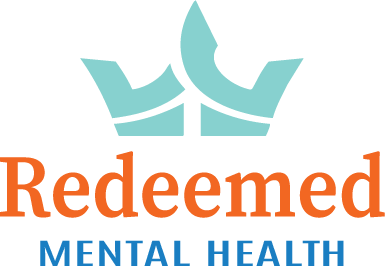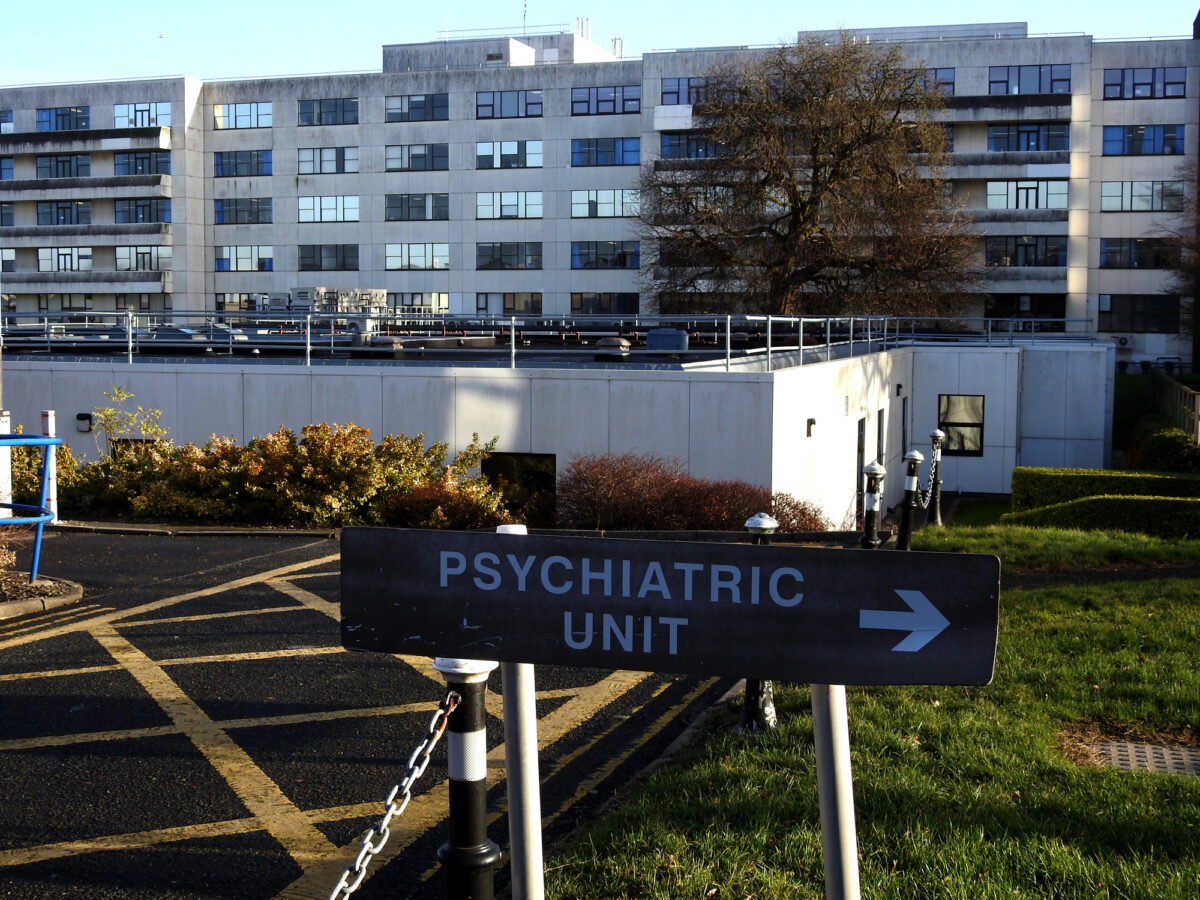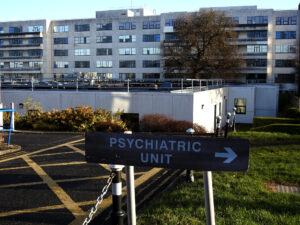Types of Outpatient Psychiatric Programs
Outpatient psychiatric treatment offers flexible options to meet a range of mental health needs. These programs vary in intensity and structure, allowing individuals to receive care that aligns with their specific symptoms, schedules, and recovery goals. From occasional therapy sessions to more structured daily programs, there’s a level of outpatient care designed for everyone.
Standard Outpatient Care (OP)
Standard outpatient care is often the starting point for individuals managing mild to moderate mental health symptoms. It offers the least intensive form of outpatient treatment while still providing consistent therapeutic support.
Key Features:
- Weekly or Bi-Weekly Therapy Sessions:
- Clients typically meet with a licensed therapist for individual sessions, focusing on coping skills, stress management, emotional regulation, and personal growth.
- Medication Management (When Needed):
- For individuals who benefit from psychiatric medications, standard outpatient care often includes regular check-ins with a psychiatrist or prescribing clinician to monitor medication effectiveness and adjust dosages as needed.
- Focus on Symptom Management & Skill Building:
- This level of care emphasizes strategies for managing anxiety, depression, mood disorders, and other common mental health challenges without disrupting daily routines.
Who It’s Best For:
- Individuals with mild to moderate symptoms who can manage daily responsibilities without intensive oversight.
- People who have completed higher levels of care (such as IOP or PHP) and want continued support.
- Those seeking ongoing therapy as part of a long-term mental health plan.
Standard outpatient care helps clients strengthen coping mechanisms, work through life challenges, and maintain emotional balance while living independently. It’s also ideal for those who want periodic mental health check-ins without committing to a more time-intensive program.
Intensive Outpatient Program (IOP)
An Intensive Outpatient Program (IOP) offers a balance between structured psychiatric treatment and the flexibility to maintain daily responsibilities. It’s designed for individuals who need more support than standard outpatient care but don’t require full-time supervision. IOP allows clients to work on their mental health while managing work, school, or family obligations.
Key Features:
- Structured Weekly Schedule:
- IOP typically runs 3 to 5 days a week for 3–4 hours per session, providing consistent, focused care while leaving time for everyday responsibilities.
- Blended Therapy Approaches:
- IOP combines various therapeutic methods to create a well-rounded treatment experience:
- Individual Therapy: One-on-one sessions that focus on personal challenges, emotional regulation, and goal setting.
- Group Therapy: Peer-based discussions that build communication skills, promote accountability, and reduce isolation.
- Skills Training: Practical tools for managing anxiety, depression, trauma, and other mental health concerns. This may include Cognitive Behavioral Therapy (CBT), Dialectical Behavior Therapy (DBT), and Mindfulness-Based Stress Reduction (MBSR).
- Medication Management (If Needed):
- For clients who benefit from psychiatric medication, regular check-ins with prescribing clinicians ensure dosages are effective and align with treatment goals.
Who It’s Best For:
- Individuals managing moderate to severe symptoms of depression, anxiety, PTSD, or bipolar disorder.
- People who need structured care but want to avoid hospitalization.
- Those transitioning from inpatient psychiatric care who still require focused support.
- Clients dealing with dual diagnoses—mental health conditions combined with substance use disorders.
Key Benefits:
- Flexibility to maintain daily life while receiving intensive care
- Strong peer support through group therapy
- Development of coping skills to navigate real-world stressors
- Focused treatment for both mental health disorders and co-occurring conditions
An IOP can serve as either a primary treatment option or as a step-down from inpatient care, giving clients the tools and support needed to manage their mental health more independently.
Partial Hospitalization Program (PHP)
A Partial Hospitalization Program (PHP) offers one of the highest levels of outpatient psychiatric care, designed for individuals who need structured, daily support but don’t require 24/7 inpatient hospitalization. It’s often seen as a bridge between full inpatient care and less intensive outpatient programs, providing stability while allowing clients to return home each evening.
Key Features:
- Full-Day Treatment, Home at Night:
- PHP typically runs 5–6 hours a day, 5 days a week, providing the depth of care found in inpatient programs while allowing clients to maintain a connection to their home environment.
- Integrated Mental Health Services:
- PHP combines multiple therapeutic approaches to address a wide range of mental health conditions:
- Psychiatric Evaluations & Medication Management: Regular sessions with psychiatrists and prescribing clinicians to fine-tune medications and monitor progress.
- Individual Therapy: Focused, one-on-one sessions targeting the root causes of emotional distress and teaching coping strategies.
- Group Therapy: Facilitated peer sessions that foster community support, shared learning, and social skill development.
- Skills Training: Emphasis on emotional regulation, stress management, mindfulness, and problem-solving techniques.
- Family Involvement (When Appropriate): Family therapy sessions may be included to strengthen relationships and create a supportive recovery environment.
- Crisis Management & Prevention:
- PHP is well-suited for individuals at risk of hospitalization but stable enough to live at home. The structured nature of the program helps reduce the risk of crisis episodes by providing intensive, daily monitoring and therapeutic intervention.
Who It’s Best For:
- Individuals with severe symptoms of depression, anxiety, bipolar disorder, PTSD, or mood disorders.
- Those transitioning from inpatient psychiatric care who still require structured support.
- Clients experiencing emotional or psychological crises but who can remain safe outside a hospital setting.
- People with co-occurring disorders who need focused, dual-diagnosis treatment.
Key Benefits:
- Access to intensive treatment without full hospitalization
- Opportunity to practice coping skills in real-life settings between sessions
- Strong focus on both stabilization and long-term recovery
- Flexibility to maintain family connections and a sense of normalcy
PHP provides a level of care that empowers individuals to focus entirely on their mental health during the day while still enjoying the comfort of home in the evenings. It’s a strong option for those who need a structured recovery plan without the commitment of inpatient care.
How Outpatient Psychiatric Treatment Works
Outpatient psychiatric treatment is designed to provide structured, personalized care while giving individuals the flexibility to maintain daily responsibilities. It follows a step-by-step process that ensures treatment aligns with the client’s evolving needs, focusing on immediate relief and long-term stability.
1. The Intake and Assessment Process
Every treatment plan begins with a thorough assessment to understand the individual’s needs. This initial phase lays the foundation for personalized care and helps set clear, realistic goals.
Key Steps in the Intake Process:
- Psychiatric Evaluation:
- Licensed clinicians conduct in-depth evaluations to identify mental health concerns, co-occurring disorders, and potential underlying factors that may impact recovery. This helps in tailoring the most effective treatment plan.
- Medical & Psychological History Review:
- Understanding past mental health diagnoses, medication history, and previous treatments allows providers to create a plan that avoids past pitfalls and builds on what’s worked before.
- Goal-Setting for Symptom Management:
- Clients work with their care team to set achievable goals, focusing on symptom reduction, emotional regulation, coping skills, and improving overall quality of life.
The intake process is designed to be collaborative, ensuring clients feel heard and involved in shaping their path forward.
2. Therapy & Treatment Approaches Used
Outpatient psychiatric programs use evidence-based therapeutic methods tailored to individual needs. These approaches help address a range of mental health concerns, from anxiety and depression to trauma and mood disorders.
Core Therapeutic Modalities:
- Cognitive Behavioral Therapy (CBT):
- Widely used for anxiety, depression, and mood disorders, CBT helps individuals recognize and reframe negative thought patterns that contribute to emotional distress.
- Dialectical Behavior Therapy (DBT):
- Ideal for clients struggling with emotional regulation, interpersonal challenges, or self-harm behaviors, DBT focuses on building skills in mindfulness, distress tolerance, and emotional balance.
- Trauma-Focused Therapies (e.g., EMDR):
- For individuals with trauma histories, therapies like Eye Movement Desensitization and Reprocessing (EMDR) help process past experiences and reduce their emotional impact.
- Medication-Assisted Treatment (When Necessary):
- In cases where psychiatric medication can improve outcomes, medication management is integrated into the treatment plan. Psychiatrists closely monitor dosages and adjust prescriptions as symptoms evolve.
- Group and Family Therapy:
- Group sessions provide peer support and reduce feelings of isolation, while family therapy strengthens communication and creates a more supportive home environment.
3. Tracking Progress and Adjusting Care
Outpatient psychiatric care is flexible by design, allowing for ongoing adjustments to meet changing needs. Regular check-ins with the treatment team help ensure that progress remains steady and that challenges are addressed quickly.
How Progress Is Monitored:
- Routine Evaluations:
- Psychiatrists and therapists assess symptom changes, emotional well-being, and effectiveness of treatment. This allows for timely adjustments in therapy approaches or medication.
- Treatment Plan Updates:
- As clients move through different recovery phases, their treatment plans are refined to focus on new goals, whether transitioning to less intensive care or addressing new challenges.
- Feedback-Driven Care:
- Client input is central to the process. Regular discussions with therapists help fine-tune approaches, ensuring the treatment remains aligned with personal goals and preferences.
This ongoing cycle of evaluation and adjustment helps maintain forward momentum, supporting both short-term improvements and long-term recovery.
Who Can Benefit from Outpatient Psychiatric Treatment?
Outpatient psychiatric treatment is designed to meet people where they are in their mental health journey. It offers structured care while allowing clients to maintain aspects of their daily routines. Whether managing long-standing conditions or navigating new challenges, outpatient programs provide flexible, targeted support for a wide range of needs.
1. Individuals Managing Common Mental Health Disorders
Outpatient psychiatric treatment is often the right choice for people living with anxiety, depression, PTSD, OCD, or bipolar disorder. These conditions can impact mood, focus, relationships, and overall well-being, but they can also be managed effectively with the right treatment strategies.
How Outpatient Care Helps:
- Anxiety Disorders: Learn coping strategies to manage panic attacks, social anxiety, and generalized anxiety in real-life situations.
- Depression: Build tools to break cycles of negative thinking, improve mood, and regain motivation.
- Post-Traumatic Stress Disorder (PTSD): Access trauma-focused therapies like EMDR and CBT to process past experiences and reduce triggers.
- Obsessive-Compulsive Disorder (OCD): Utilize Exposure and Response Prevention (ERP) and other evidence-based approaches to reduce compulsive behaviors.
- Bipolar Disorder: Develop strategies for mood stabilization, stress management, and medication adherence.
Outpatient programs create a supportive environment where clients can actively work on these challenges while staying connected to family, work, and school.
2. People Transitioning from Inpatient Care
For those who have completed a psychiatric hospitalization or an inpatient program, outpatient care provides a structured yet flexible step-down option. This transition phase helps clients continue their progress while gradually reintegrating into daily life.
Why Outpatient Care Supports Long-Term Recovery:
- Provides ongoing therapy and medication management
- Helps reinforce coping skills learned during inpatient treatment
- Reduces the risk of relapse by maintaining a steady support system
- Allows for gradual re-entry into work, school, or family responsibilities
Stepping directly from inpatient care to everyday life can feel overwhelming. Outpatient psychiatric treatment eases that transition, ensuring that progress continues even after leaving a more controlled setting.
3. Those Seeking Stability While Maintaining Daily Routines
Outpatient programs are ideal for people whose symptoms are stable enough to avoid inpatient care but who still need professional guidance and support. This includes individuals who want to focus on personal growth, manage stress, or strengthen emotional regulation without disrupting their daily commitments.
Outpatient Care Works Well for People Who:
- Manage chronic mental health conditions and want ongoing care
- Are balancing work, school, or family life and need flexible scheduling
- Have strong social support networks but benefit from additional therapeutic input
- Value a preventative approach to mental health, using therapy and skills training to avoid potential crises
This flexible model ensures that individuals can get the care they need without putting life on pause.
4. Individuals Seeking a Less Intensive Alternative to Inpatient Care
Not everyone in emotional distress requires hospitalization. Outpatient psychiatric treatment offers a middle ground—supportive and structured, but without the need for 24/7 supervision.
This Option Is Ideal For:
- Those in emotional or psychological distress who don’t meet inpatient criteria
- People who need mental health support but also want to remain at home
- Clients who benefit from group therapy, medication management, and individual counseling
- Individuals who want to test structured care before committing to more intensive programs
Outpatient care gives people access to mental health resources that promote healing while fitting within their existing responsibilities.
Pros & Cons of Outpatient Psychiatric Care
Outpatient psychiatric treatment offers a flexible and supportive approach to mental health care, but like any treatment model, it comes with its own set of strengths and limitations. Understanding both sides can help individuals make informed decisions about the care that best fits their needs.
Pros of Outpatient Psychiatric Care
1. Flexibility to Maintain Work, School, and Family Life
Outpatient programs are designed to work around daily responsibilities, making it easier for clients to seek help without pausing life’s commitments. Sessions are scheduled during convenient hours, including evenings or weekends, to accommodate work, school, and family obligations.
- Attend therapy while maintaining employment or education
- Stay involved in family routines and caregiving roles
- Balance treatment with social and community responsibilities
This flexibility allows for smoother therapy integration into everyday life, helping clients apply learned skills in real-world situations.
2. Lower Costs Compared to Inpatient Care
One of the most significant benefits of outpatient psychiatric treatment is its affordability. Because there are no costs for overnight stays or 24-hour supervision, outpatient programs are generally less expensive than inpatient alternatives.
- Lower overall treatment costs
- Broader insurance coverage for outpatient services
- Reduced indirect expenses (e.g., time off work, travel costs)
This makes outpatient care more accessible for individuals seeking quality treatment on a tighter budget.
3. Access to Diverse Treatment Modalities
Outpatient psychiatric programs offer a wide range of therapeutic options, ensuring that treatment is tailored to the individual’s unique needs. Clients can often combine multiple therapies and services within one program, promoting a more holistic approach to care.
- Individual therapy for focused, one-on-one support
- Group therapy for peer connection and shared experiences
- Medication management for psychiatric conditions that require pharmacological support
- Specialized therapies like Cognitive Behavioral Therapy (CBT), Dialectical Behavior Therapy (DBT), or trauma-informed care
This variety allows for dynamic, personalized treatment plans that evolve as the client’s needs change.
Cons of Outpatient Psychiatric Care
1. Less Structured Than Inpatient—May Not Suit Severe Cases
While outpatient care offers flexibility, it lacks the round-the-clock support provided in inpatient settings. Individuals experiencing severe symptoms or those at risk of harming themselves or others may require more intensive supervision than outpatient care can provide.
- No 24/7 monitoring or crisis management
- Greater potential for relapse in high-risk cases
- Reduced access to immediate support during crises
For clients needing close medical observation or those in acute mental health crises, inpatient or residential care may be more appropriate.
2. Requires Personal Responsibility and a Stable Home Environment
Outpatient care assumes a level of personal accountability. Clients must consistently attend appointments, adhere to treatment plans, and manage their medications. This can be challenging for individuals struggling with motivation, time management, or unstable living conditions.
- Relies on the client’s ability to self-manage outside of sessions
- Requires a supportive and safe home environment
- Potential for skipped sessions or inconsistent participation
Without strong personal accountability or stable support at home, some individuals may find it harder to progress in outpatient care.
3. Potential for Outside Triggers to Interfere with Treatment
Since clients remain in their regular environments during outpatient treatment, they may still face stressors and triggers that can hinder their progress. Work pressures, relationship challenges, or community stressors can interfere with mental health goals.
- Ongoing exposure to environmental stressors
- Greater temptation to avoid or skip sessions
- Increased vulnerability to relapse without structured supervision
Outpatient care works best when clients have coping strategies and access to external support systems that reinforce their progress.
How to Choose the Right Outpatient Program For Your Circumstances
Finding the right outpatient psychiatric treatment starts with understanding your needs and what each program offers. Outpatient care isn’t one-size-fits-all—there are varying levels of structure and support to match different symptoms, goals, and lifestyles. The right program balances flexibility with the level of care that supports meaningful progress.
1. Assess the Severity of Symptoms and Daily Functioning
The intensity of your symptoms often dictates the level of outpatient care that’s most effective. Consider how your mental health impacts your ability to manage daily responsibilities like work, school, and relationships.
- Mild to Moderate Symptoms: If you’re managing conditions like mild anxiety or depression and can maintain daily activities, a Standard Outpatient Program (OP) with weekly or bi-weekly sessions may be enough.
- Moderate to Severe Symptoms: For more persistent or disruptive symptoms—such as mood disorders, trauma responses, or co-occurring conditions—structured programs like an Intensive Outpatient Program (IOP) provide added support without requiring full-time care.
- Acute or High-Risk Symptoms: If you’re experiencing severe symptoms that significantly interfere with daily life but don’t require inpatient hospitalization, a Partial Hospitalization Program (PHP) offers the highest level of outpatient care, providing full-day sessions with medical oversight.
Key Question to Ask Yourself:
“Can I manage my day-to-day responsibilities while receiving treatment, or do I need more structured support to focus on recovery?”
2. Determine the Level of Structure You Need
Outpatient programs vary in how much time you’ll spend in treatment each week. Choosing the right fit depends on how much structure you need to stay engaged and make progress.
Program TypeFrequency & DurationBest For
Standard Outpatient (OP) 1–2 sessions per week Mild symptoms, maintenance care
Intensive Outpatient Program (IOP) 3–5 days/week, 3–4 hours/day Moderate symptoms, skill-building, relapse prevention
Partial Hospitalization Program (PHP) 5 days/week, 5–6 hours/day Severe symptoms, step-down from inpatient care
If you’re unsure, some treatment centers offer assessments to help match you with the right level of care.
3. Verify the Quality of Care: Licensed Professionals & Evidence-Based Practices
The effectiveness of outpatient psychiatric treatment largely depends on the approach and expertise of the providers. Look for programs that:
- Employ licensed mental health professionals such as psychiatrists, clinical psychologists, and licensed therapists.
- Use evidence-based therapies like Cognitive Behavioral Therapy (CBT), Dialectical Behavior Therapy (DBT), and trauma-focused approaches.
- Include medication management when needed, overseen by a qualified psychiatrist.
- Offer specialized treatments if necessary (e.g., trauma therapy, family counseling, or substance use support).
Reputable treatment centers will openly share information about their care models, staff qualifications, and success rates.
4. Understand Insurance Coverage & Program Costs
Before enrolling, it’s important to clarify the financial aspects of treatment. Outpatient psychiatric care is often covered by health insurance, but coverage varies based on your plan and the type of program.
- Contact your insurance provider to confirm coverage for Standard Outpatient, IOP, or PHP programs
- Ask the treatment center if they offer insurance verification services
- Inquire about self-pay rates or sliding scale fees if insurance is limited
- Explore options for payment plans if upfront costs are a concern
Many centers will help navigate insurance questions and offer transparent information about costs.
5. Factor In Accessibility and Logistics
The best program is the one you can consistently attend. Consider the following practical details:
- Location: Is the center close enough to make regular visits manageable?
- Scheduling: Does the program offer evening or virtual sessions if you work or have family commitments?
- Support Services: Are there additional resources like family counseling or peer support groups?
Virtual outpatient options have made care more accessible, but in-person programs like face-to-face therapy and structured group settings may offer benefits. Choosing what fits your lifestyle can make the difference between starting and sticking with treatment.
Finding the Right Path Toward Mental Health Recovery
Outpatient psychiatric treatment offers a flexible and accessible way to address mental health challenges without stepping away from daily life. Whether through a few weekly therapy sessions or more structured programs like Intensive Outpatient Programs (IOP) or Partial Hospitalization Programs (PHP), outpatient care creates space for healing while maintaining balance.
For many, this type of treatment is the bridge between managing life’s responsibilities and receiving the support needed to move forward. It’s designed to adapt—offering varying levels of structure to meet individual needs. Some may thrive with the consistency of an IOP, while others find stability in weekly outpatient sessions. PHP provides comprehensive care during the day, with the comfort of returning home at night for those navigating more severe symptoms.
The goal isn’t just symptom management—it’s growth, resilience, and learning to move through life with greater clarity and control. Outpatient psychiatric care empowers individuals to actively participate in their recovery, building skills that extend beyond the therapy room.
If you or someone you care about is considering outpatient treatment, know there’s no one “right” path—just the one that aligns with where you are today. Flexibility is one of outpatient care’s greatest strengths, giving you options to adjust as your needs evolve.
Redeemed Mental Health in Newport Beach offers a range of outpatient psychiatric programs, including IOP and PHP, tailored to meet you where you are in your mental health journey. Whether you’re navigating anxiety, depression, trauma, or complex mental health conditions, our team is here to provide the tools and support to help you move forward.
Looking for outpatient psychiatric treatment near you?
Reach out to Redeemed Mental Health today and explore care options designed around your life, your needs, and your future.
![]() Redeemed Mental Health
on
April 14, 2025
Redeemed Mental Health
on
April 14, 2025























 You’re Not Enjoying Things
You’re Not Enjoying Things Your Routines are Falling Apart
Your Routines are Falling Apart Trouble with Relationships
Trouble with Relationships
 Insight-oriented therapy is a talking therapy where you sit down and talk to your therapist over a period of months or even years. It’s the classic picture of a patient leaning back on a couch with the therapist sitting on a chair listening.
Insight-oriented therapy is a talking therapy where you sit down and talk to your therapist over a period of months or even years. It’s the classic picture of a patient leaning back on a couch with the therapist sitting on a chair listening.



















